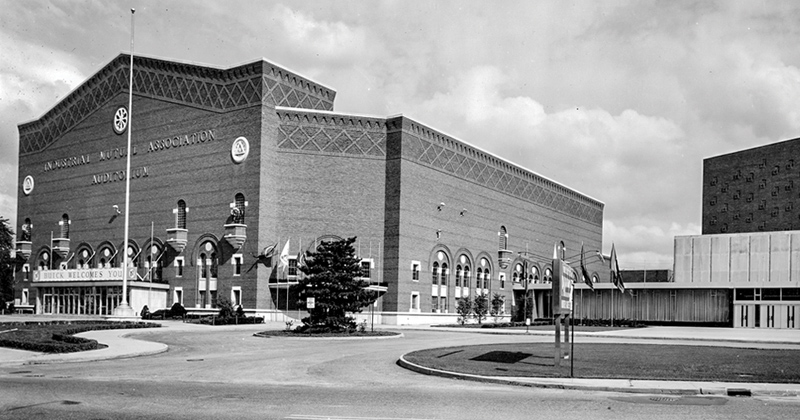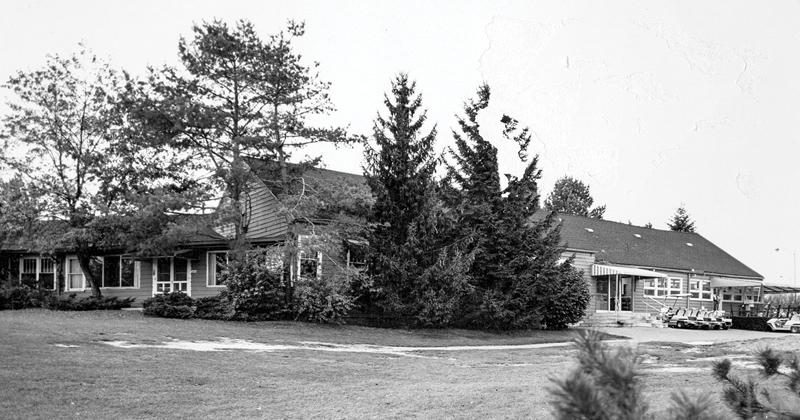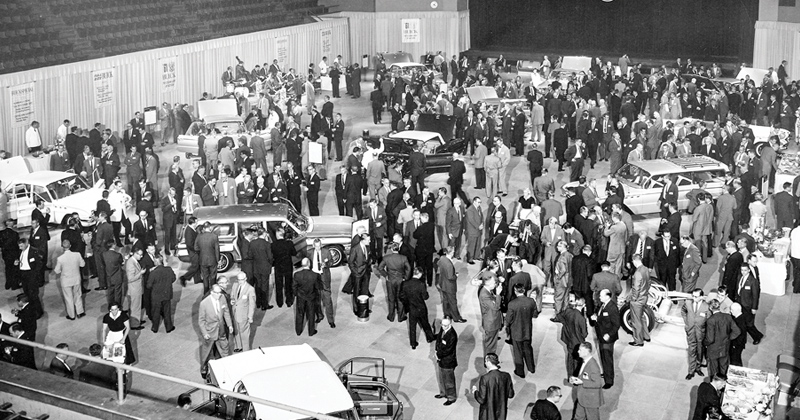
Some of the biggest names in Flint’s and the auto industry’s history behind IMA’s formation
Industrial Mutual Association.
It’s a name that’s associated with some of the most iconic people and places in the Flint area’s history.
And while the scale and scope of the services the IMA offers has changed since the organization was formed in 1922, as it celebrates its 100th anniversary, the organization remains very much focused on its original mission of providing recreational and educational activities to the community.
Only now, that focus has narrowed primarily to the game of golf, namely through the IMA’s ownership of the Brookwood Golf Club in Burton and operation of the First Tee Eastern Michigan golf instructional program for youth.

“As the auto industry shrank and people moved away, we did a lot of soul searching and tried to figure out what we were to be going forward,” said Diane Wojciechowski, marketing director for IMA Brookwood and executive director of First Tee Eastern Michigan. “First Tee was a great fit because the IMA has a history of service to the community and providing recreation programs, so what a better fit than being able to be on the golf course.”
Golf was just one part of the IMA’s portfolio when the organization bought Brookwood in 1963.
By then, the association had constructed the IMA Auditorium in downtown Flint, which was the site of activities including lectures, concerts, exhibitions, dances and stage shows. IMA also once operated an athletic field adjacent to the auditorium. The property, which later became the foundation of the AutoWorld theme park, is now part of the University of Michigan-Flint campus.
In addition, IMA constructed what is now the Dort Financial Center arena on Lapeer Road in 1969. The facility originally served as the home of the Flint Generals of the International Hockey League and now is the base of the Flint Firebirds, an Ontario Hockey League team.
“So many people here in Flint still refer to the sports arena as the IMA,” Wojciechowski said.
For years, IMA offered youth hockey, baseball and softball programs throughout the community. It opened Safetyville U.S.A., which taught children traffic and automobile safety, in 1963 before turning it over to Genesee County Parks and Recreation in 1978.
Some of the biggest names in Flint’s and the auto industry’s history were behind the IMA’s formation. The foundation was laid by J. Dallas Dort, founder of the Durant-Dort Carriage Company, who helped establish the Associated Factories of Flint in 1901, which led to the formation of the Flint Factories Mutual Benefit Association. The latter provided insurance to vehicle factories’ employees.
In 1918, Charles Stewart Mott, a General Motors vice president, appointed Walter P. Chrysler to chair a committee dubbed the Industrial Fellowship League. It offered recreational and educational opportunities for workers, including the evening Auto Trade School. The school later became the Flint Institute of Technology and then developed into General Motors Institute, which is now Kettering University.
The Industrial Mutual Association was formed in 1922 when the Flint Factories Mutual Benefit Association and the Industrial Fellowship League merged.
To help support its various endeavors, the IMA for years ran vending and cafeteria operations within local auto factories.

First Tee is an international organization that promotes character education and life skills through the game of golf. IMA’s Eastern Michigan chapter encompasses six counties and serves more than 500 youth in its summer programming. It also is involved with schools through training physical education teachers in the First Tee curriculum. All told, more than 14,000 students have received training through First Tee Eastern Michigan.
“During classes we talk a lot about values such as honesty, judgment, integrity and sportsmanship,” Wojciechowski said. “We might talk about how you are honest at home and honest at school, and then how are you honest on the golf course, because you count all the strokes and you make sure you call penalties on yourself when needed.”
The program relies on corporate sponsorships and fundraisers to offset enrollment, equipment and coach training costs.
“The more we grow, the more we try to get volunteers to help us,” Wojciechowski said. “They’re just a great group of people who care about our kids and do a great job not only teaching them golf fundamentals but being great mentors to our kids.”
